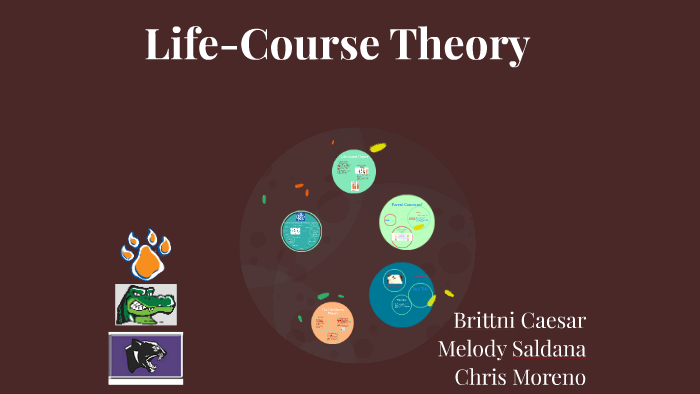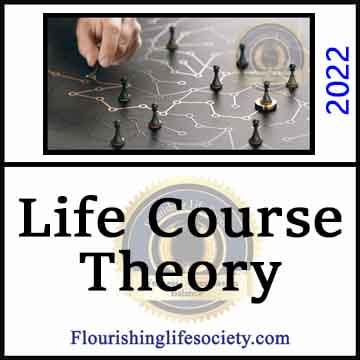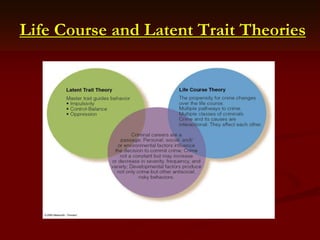Life course theory is a framework for understanding the ways in which individual lives are shaped by the complex interplay of personal characteristics, historical context, and social institutions. This perspective suggests that the trajectory of an individual's life is shaped by a variety of factors that operate at different stages of development, and that these factors interact with one another in complex ways to shape the course of an individual's life.
One key aspect of life course theory is the concept of socialization, which refers to the process by which individuals learn the norms, values, and behaviors of their culture. Socialization begins in infancy and continues throughout the lifespan, as individuals encounter new social situations and learn to navigate them. Socialization is shaped by a variety of factors, including family, peers, education, and media, and it plays a crucial role in shaping an individual's identity, worldview, and behavior.
Another important aspect of life course theory is the concept of social reproduction, which refers to the transmission of social and economic advantages or disadvantages from one generation to the next. This can occur through a variety of mechanisms, including inheritance, education, and access to social networks and resources. Social reproduction has significant implications for inequality, as it can perpetuate patterns of privilege and disadvantage over time.
Life course theory also highlights the importance of historical context in shaping individual lives. Historical events, such as wars, economic crises, and political changes, can have lasting impacts on individuals and communities, influencing opportunities and outcomes for generations. For example, the Great Depression had a profound impact on the life chances of those who lived through it, as well as on their children and grandchildren.
In addition to socialization and historical context, life course theory emphasizes the role of social institutions in shaping individual lives. Social institutions, such as the family, education system, and economy, have the power to structure opportunities and constraints for individuals, and to shape their expectations and goals. For example, the education system may provide opportunities for social mobility, but it may also reproduce existing inequalities by providing unequal access to resources and opportunities based on factors such as race, class, and gender.
Overall, life course theory provides a useful framework for understanding the complex and dynamic processes that shape individual lives. By considering the interplay of personal characteristics, historical context, and social institutions, we can gain a deeper understanding of the many factors that shape our lives and the ways in which these factors interact with one another.







